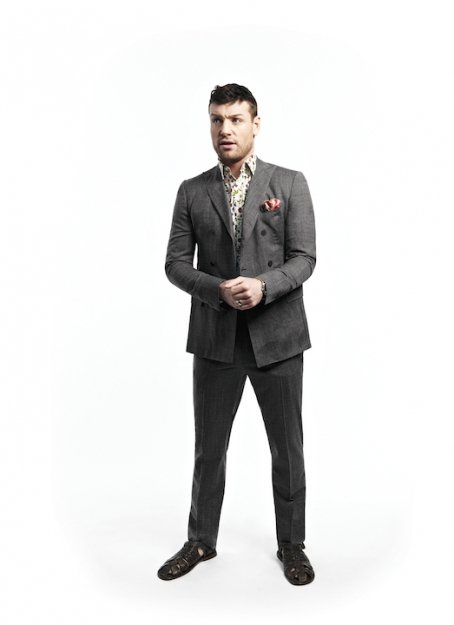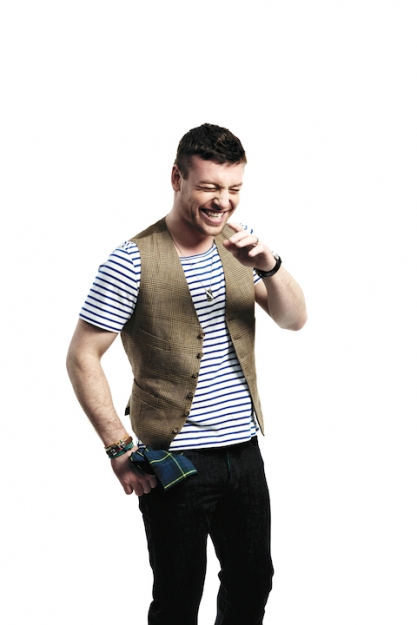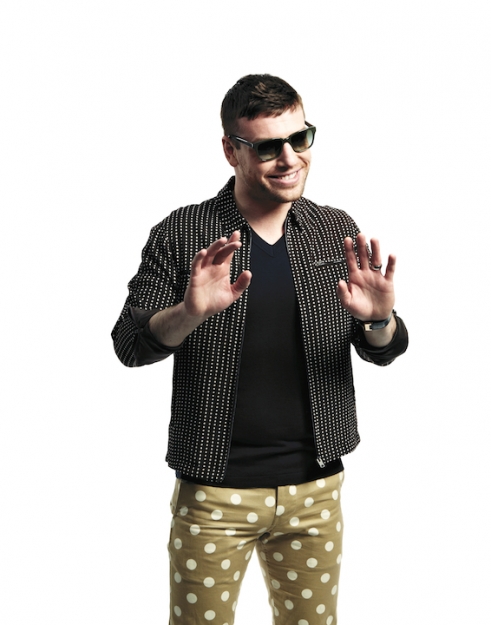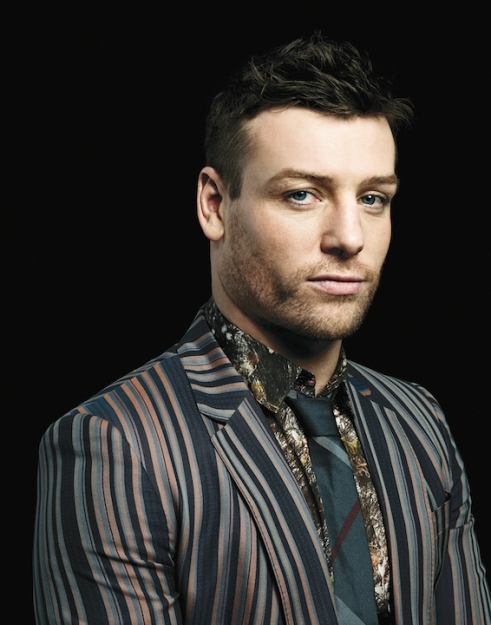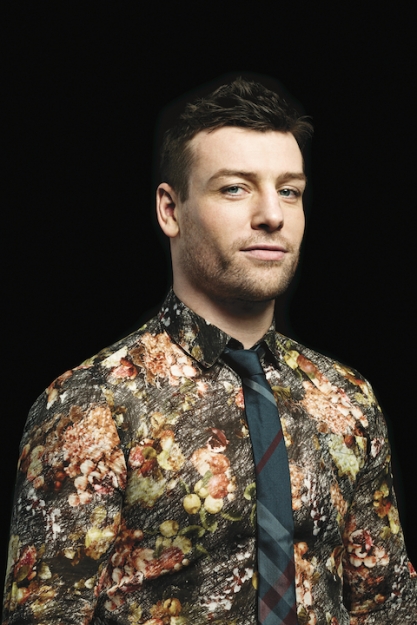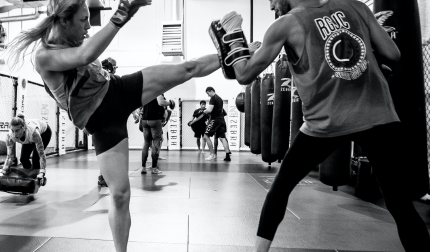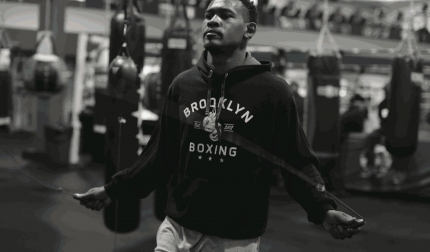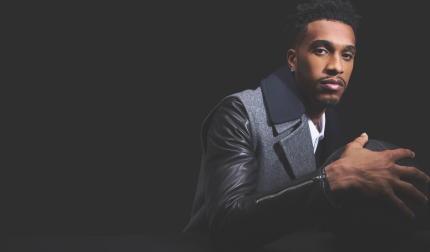There is something metaphorical about a boxer’s inability to remove his own gloves after a fight. After his hands are wrapped, gloves laced, taped and inspected, he is out there alone in the ring to engage in combat. But when the fight is done, the fighter still needs someone to cut off the tape and help him shed his gloves. To become a civilian again, he needs a helping hand. Perhaps that’s why so many fighters can’t leave the ring. Long past the prime of their careers, knowing no other professional outlet, the boxer continues to battle. Without that helping hand, the gloves stay on, until his health is compromised.
John Duddy was very aware of this boxing stereotype as the biggest fight of his career was approaching on March 12, 2011. Matched up against fellow Irishman Andy Lee, the HBO fight was to be the biggest payday of Duddy’s career. It was believed that the winner would propel himself to a potential bigger payday with a middleweight championship bout against Sergio Martinez. But something was missing. Something that John Duddy couldn’t fight without.
“It started even before training to fight Andy Lee,” Duddy remembers. “I used to love to be in the gym. I loved to spar, loved to train. But I would get into the gym and tell my trainer, ‘Let’s not do any sparring today. Let’s just work the pads a bit.' And when you’re telling your trainer what to do, you’re not a fighter any more.”
“We would go away for months at a time to train for fights,” Duddy continues. “And I worked with some great trainers. But it was just me and my suitcase. I wanted to be home with my wife, Grainne. And after a fight, you’re in the changing room, looking at your check, and you’re saying to yourself, ‘Is this what it’s all about’”
Boxing had been a part of John Duddy’s life from the day he was born. On that day, be became the son of a then 18-year-old amateur boxer named Mickey Duddy. In a few years, while working two separate jobs, Mickey turned professional and began taking his son, John, to the gym with him in Derry, Northern Ireland. “My dad got into boxing from his big brother,” says John, who was named after his uncle.
“My dad was a big fan of Muhammad Ali. He was (former featherweight champion) Barry McGuigan’s sparring partner. He was (former lightweight champion) Ken Buchanan’s sparring partner.” At the age of 5, John would frequent the gym to watch Mickey train. “They would put me in the corner with the speed bag so that I wouldn’t get in the way of the other fighters,” he remembers. When John was 7, a kid pulled out of a local fight and a trainer asked Mickey if his son would be up for filling it. “I really wanted to do it,” John says. “Fortunately, I won the fight. The other kid didn’t come out of the corner after the first round. After that, my father took me away from boxing, because I was too young. He had seen kids that had started training that early. By the time they were 15, they were burned out. So I wasn’t allowed back to train until I was at least 10. I had been doing it ever since.”
At age 21, Duddy came to New York to be a professional fighter. He quickly built a reputation for himself as an entertaining fighter to watch. So much so, that he began to headline cards at Madison Square Garden. “To headline the Garden?” Duddy says. “If you had told me at 15, that someday I would be a headliner in the most legendary place in boxing, I would have looked at you funny.”
After compiling a 29-1 record, including a victory over Michael Medina in a brand new Cowboys Stadium in Dallas, Duddy lost a tough decision to Julio Caesar Chavez Jr. for the vacant WBC Middleweight Title. After a few months to ponder the future, he signed to fight Andy Lee. The fight which was scheduled just a few days before St. Patrick’s Day, would have been one of the biggest boxing matches in Irish history.
But at age 32, the prophecy his father had about burning out was coming true before Duddy’s eyes. With the passion for fighting no longer in him, Duddy shocked the world by announcing his retirement two months before his fight with Andy Lee and the biggest payday of his career. The fight world couldn’t believe Duddy would walk away at the pinnacle of his career. To this day, he’s asked almost daily when he will return to the ring. All boxers come back to make the same mistake, don’t they? “They can ask, but the answer’s always the same: No,” Duddy says. “And I don’t need to explain it anymore. I’ve already explained it and nothing has changed.”
But a funny thing happened on the way to retirement. Duddy received a call from another former Irish boxer, Seamus McDonagh. McDonagh had taken up acting after his boxing career ended. “I love telling stories,” Duddy says. “I’m an Irishman! That’s what we do! So I asked Seamus how he became an actor. I thought it would be something I would like to try.” A few months later, McDonagh called to ask Duddy if he would like to be in an off-Broadway play he was working on called Kid Shamrock. “I asked Seamus what it was about. He said it was the true story of an Irish fighter named Bobby Cassidy who was an alcoholic and considering retirement. I said ‘Well, two out of three ain’t bad! I’ll give it a go!’”
Duddy works alongside McDonagh and former welterweight champion Mark Breland. Former heavyweight champion Michael Bentt directed it. “I met all these ex- fighters that were pursuing something else,” he says. “You hear the stereotype that when a fighter’s done, you never hear from them again. That’s why guys keep going back. I’ve been boxing my whole life. There must be something else I’m good at.”
Duddy’s acting career is beginning to gain momentum. He was selected to appear in the Bon Jovi video Because We Can, which was directed by Fisher Stevens. And now Duddy is playing a lead role in a new play called For Love. The play tracks the lives of several Irish professionals who are successful in their careers, but are miserable in their lives as they search for true love. After a month of shows in New York, the play has made a tour of Northern Ireland, with stops in Belfast and Duddy’s hometown of Derry.
For Duddy, returning home as an actor has brought a new wave of emotions to him. “It’s odd coming home to act, because I don’t know if I’m a success yet,” he says. “The buzz around Derry has been great. It’s almost like fighting, except that was only one night. I’m doing this six nights a week. I never became #1 in the world, but now I have another stage. And when I do it, I’ve got a pulse again. I’ve got butterflies. In a way, I’m still out there fighting to get better. At least I’m not losing my brains doing it.”


